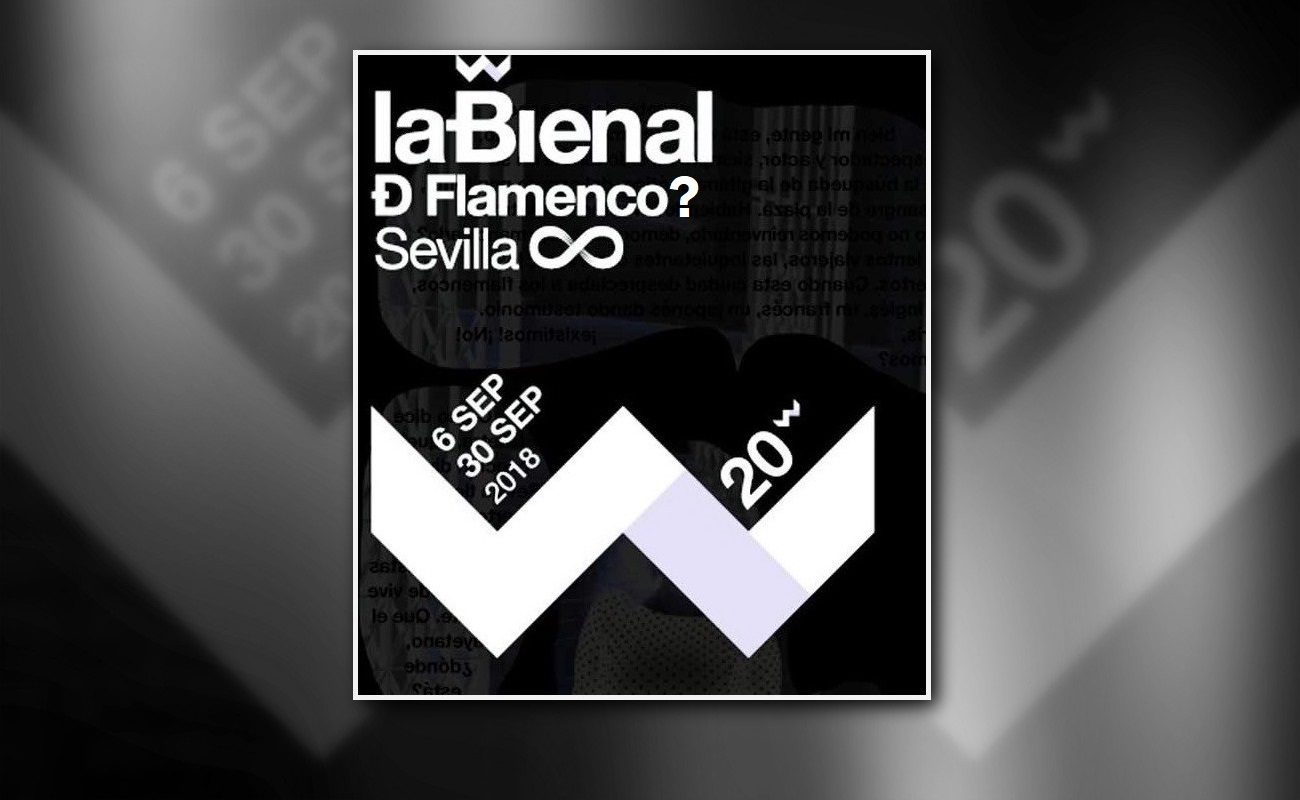Assessing the Bienal? Impossible
It’s still too early to find out about the numbers of the 20th Bienal de Flamenco, which closed yesterday with a concert by Dorantes. Not that I care much about the numbers, the financial aspect, but it’s public money and people deserve to know how much this festival cost Seville’s City Council. I’m more interested about the artistic assessment, yet when

It’s still too early to find out about the numbers of the 20th Bienal de Flamenco, which closed yesterday with a concert by Dorantes. Not that I care much about the numbers, the financial aspect, but it’s public money and people deserve to know how much this festival cost Seville’s City Council. I’m more interested about the artistic assessment, yet when it comes to write my own for ExpoFlamenco it gets complicated because I was unable to attend to every performance, since there were too many of them. Thus, it wouldn’t be fair to make an assessment having attended just fourteen or fifteen events.
According to the shows I attended, I don’t recall a worse edition than this one, with performances that not only were not memorable, but left a bitter memory. For example, the show Arena, by Pedro G. Romero and Israel Galván, with Niño de Elche as invited guest, at Seville’s Real Maestranza bullfighting ring, which is not usually a venue given to mock bullfights. I thought it was awful, besides being quite expensive, and we’ll see that when the financial statement is published.
That show and the one by Niño de Elche were the worst, in my opinion. Did I say opinion? Yes, I did. There is a problem in the Bienal with the critic’s opinions of its performances. People say the critics of Seville are too harsh with the artists, and perhaps there’s some truth to this. In fact, I’m aware of one artist, rather renowned, who once refused to take part in this festival because they didn’t want to face the critics. Even as I don’t usually read other critics during the festival, I did so this year to see if they were too harsh indeed. Yet, I don’t think the critics in general were harsh at all, even as we trashed the singer from Elche. But that was mild, compared with what he said about the critics, before and after his performance.
We must have in mind a few things when it comes to properly analyse the reviews of the Bienal. First, there’s the scarcity of professionals, because it’s not a well-paid occupation, if it’s paid at all. Apparently, to qualify as a flamenco critic it’s necessary to have a degree in four or five different fields, in order to get twenty euros per review, if we get paid. Is it worth it? And then we get called fascists by a guy like Niño de Elche, the nerve, or get death wishes, which is actually kind of amusing. Thus, the quality of the reviews in general is rather low. Yet, in Seville there are good, experienced critics, and I don’t mean myself, of course. Manuel Martín Martín, Alberto García Reyes and Sara Arguijo are quite good. Or are they bad for trashing the above-mentioned singer, like he deserved? Are they good only when they write good things about the artists?
Personally, I think that the Bienal can accommodate all flamenco artists. Including Niño de Elche. He was meant to present a flamenco anthology, right? The Bienal’s director invited him because of it, correct? Then the show turned out being an embarrassment and the critics responded accordingly. I know that this singer believes he’s a genius, and maybe he is (seriously, he might) but his anthology is worthless when it comes to flamenco. That singer is really bad, and he could never be a cantaor.
The director of this festival, Antonio Zoido, said a few days ago in a popular radio show that he didn’t know what Niño de Elche was going to do. Fair enough, and that’s should disqualify him as festival director. Elche came to present an album he had already released. Maybe Zoido was referring to his performance in underwear, or the fact that he ridiculed the Bienal itself, Seville and many other things. Yet, how could he not know, or at least suspect, what that kid was going to do? A revolution, according to a foreign journalist.
The Bienal has been half-dead for several years, even if the public fill the theaters. But Zoido gave it the final blow.
Translated by P. Young




